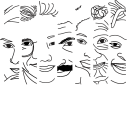The MHAHS is working with the Hepatitis B Community Alliance NSW to increase awareness of the benefits of hepatitis B testing, monitoring, treatment and prevention. Featuring health care specialists, #KnowYourHepatitisBStatus is our second media story in the series.
Know Your Hepatitis B Status: Health experts urge people from diverse backgrounds to get tested #KnowYourHepatitisBStatus
Health experts are urging people from diverse backgrounds to “know their hepatitis B status” by getting tested and making liver care a routine part of their health care. The call comes following the recent #TimeForAction campaign during when members of the NSW Hepatitis B Community Alliance called for more action on hepatitis B.
Almost 50 percent of people living with chronic hepatitis B are undiagnosed, and many are diagnosed too late to benefit from effective care and treatment.
Conjoint Lecturer with the School of Medicine, University of Western Sydney Dr Michael Burke has called for more awareness and collaboration to highlight the many benefits of people knowing their hepatitis B status.
“Knowing your hepatitis B status matters now more than ever before. Effective treatments are available which improve the health of people living with chronic hepatitis B. Early access to expert hepatitis B care prevents serious damage to people’s liver and allows people to live much longer, healthier lives. If you know your status, you can also take action to prevent its transmission,” said Dr Burke.
Everyone should be aware of hepatitis B but people born overseas where transmission from mother-to-child and during childhood is common should be more concerned.
“The majority of people living with chronic hepatitis B in Australia were born overseas and got hepatitis B when they were babies or young children. The younger a person is when they get hepatitis B, the higher the risk of developing liver damage and liver cancer as an adult. This is why chronic hepatitis B disproportionately affects people from CALD backgrounds more,” said Dr Burke.
An infant becoming infected at birth or during childhood has a 90% chance of developing chronic infection—unless they are vaccinated at birth. In contrast an adult becoming infected has less than 5% of developing chronic infection.
“Testing is the only way to know if someone has hepatitis B as it often does not show any symptoms. Getting people to take up treatment early will benefit the person living with hepatitis B as well as help reduce transmission of the virus to others. That is why it is so important that everyone get tested.”
“Early diagnosis and access to care is critical if we are to reduce the more than 6000 new cases of hepatitis B diagnosed each year in Australia and finally turn the tide against this disease.”
For more information about hepatitis B testing, including a list of doctors specifically trained in the care and management of people living with hepatitis B can be viewed here.
The NSW Hepatitis B Community Alliance (NHBCA) is the alliance of more than 20 community organisations dedicated to working together to increase awareness of hepatitis B. NHBCA promotes quality in hepatitis B care and advocates policies that ensure a comprehensive and humane response to the hepatitis B epidemic informed by science and social justice. For more information, visit Hepatitis B Community Alliance NSW on www.mhahs.org.au.
Key hepatitis B messages:
- Chronic hepatitis B disproportionately affects people from many CALD communities
- Hepatitis B can lead to liver damage or liver cancer
- Hepatitis B in most CALD communities is passed on from mother-to-child at birth or during childhood
- Get tested for hepatitis B. If you have it, there are treatments that can prevent liver cancer.
End
For media interviews, please contact Sonam Paljor from the MHAHS at (02) 9515 1234 or email
About Hepatitis B Community Alliance NSW
The Hepatitis B Community Alliance NSW champions the testing and treatment of people at risk of chronic hepatitis B and focusses on building community partnerships and working together to address hepatitis B issues in the CALD communities.
About MHAHS (Multicultural HIV and Hepatitis Service)
The Multicultural HIV and Hepatitis Service, hosted by the Sydney Local Health District, employs workers from over 20 different language backgrounds, including African languages and provides information on hepatitis B. The MHAHS can be reached on 02 9515 1234.
For more information on how to get involved with Hepatitis Awareness Week, visit http://loveyourliver.com.au/worldhepatitisday
